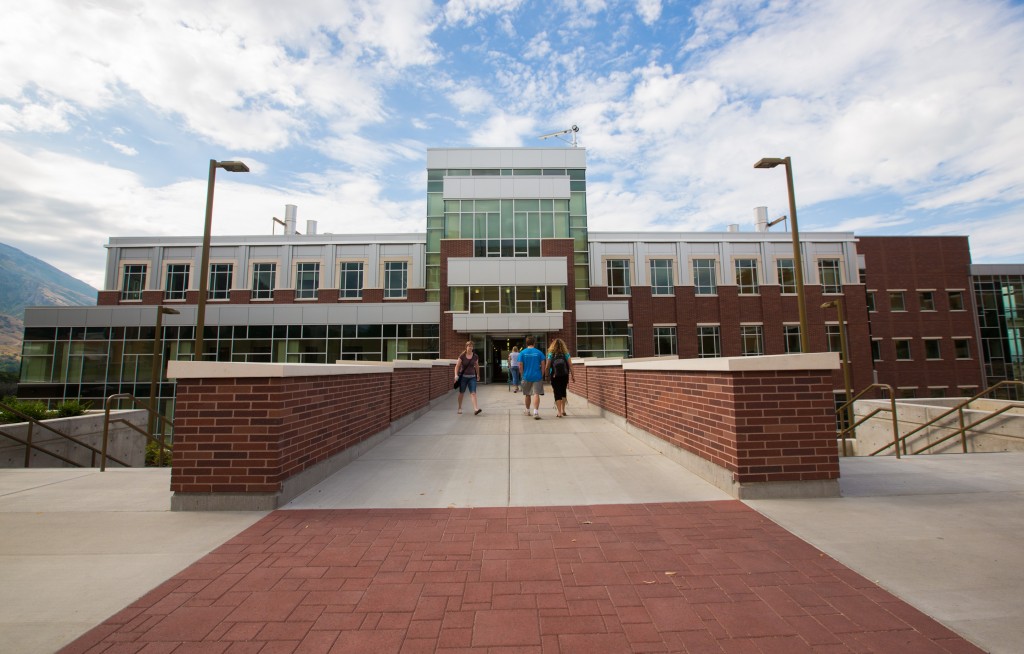
BYU will offer a new course about climate change this fall. While many departments have taught classes related to climate change, this course is said to be the first that will focus on both the science and solutions.
The class, PWS 180, is open to students of all majors and has a limit of 90 students. The draft syllabus for the course shows it will cover what controlled climate in the past, how humans affect climate, the consequences of climate change and what can be done to stop or improve climate change.
In addition to teaching students about the science of climate change, the course will also touch on faith-based subjects like stewardship and what it means to take care of God’s children and creations.
BYU plant and wildlife sciences professor Ben Abbott said the class’s code, PWS 180, refers to the course’s goal to change people’s perspectives on climate change, or cause those perspectives to do a 180-degree turn.
“The most common attitudes that I encounter are either that there is no hope that we can make a difference or that we’re not causing the problem anyway,” Abbott said. “Both of those perspectives undermine coordinated action to solve climate change, and I hope this course can reverse, or at least challenge, those views.”
Abbott will teach the course and helped spearhead the creation of the class. Last year Abbott noticed many of his students were asking questions about climate change in his environmental biology class, and he wondered if the students weren’t learning about the issue in their other classes.
Abbott and other professors got together to look through the courses BYU offered to see if there were any courses being taught on climate change specifically. They found that many classes taught certain elements of climate change — like a previously-taught geology class that focused on what caused climate change in the past — but no classes focused on current human-caused climate change.
“We just realized this was a huge gap compared to other universities of BYU’s size, which often will have more than a dozen courses on climate change because this is such an important and overarching issue that connects to so many different fields,” Abbott said.
According to Abbott, the university was supportive of the development of the course and helped them form their proposal and then get it reviewed quickly. Abbot said he was encouraged by the support the course received because it showed him that the university cared about the subject. “I really felt like BYU stayed true to its mission where we want to equip students to learn deeply about the subjects that they are studying, but also prepare them to go forth and make a difference in the world.”
BYU Biology Department Chair Richard Gill has included climate change in his conservation biology courses and hopes this new climate change class will be a launching point for students in all majors to continue studying the issue. According to Gill, climate change will affect students studying everything from environmental science to political science and humanities. “You could almost point to every college on campus where a major there would be a better major in that college after taking an interdisciplinary course like this one.”
Jani Radebaugh, a planetary scientist and BYU geology professor, wasn’t involved in the creation of the course, but she said the timing of the course is perfect because it aligns well with the interests of current BYU students. “They’re motivated to try to make a difference in the world and understand where their responsibilities lie.”
She also added that the pandemic has shown that people are don’t just want to hear things that will make them feel better; they want to know the real science and numbers about the virus and climate change as well. “That’s exactly what this class will do is give you the hard numbers about climate change, but also provide a way to discuss what’s the politics of this and what’s the ethics of this.”
Both Abbott and Gill agreed with Radebaugh that the development of this course is timely because people of all political beliefs are recognizing that climate change is real and that something needs to be done about it.
“I think that climate change is going to be a defining issue of this century, and certainly for this generation of students, there are going to be few issues that are more pressing than how to respond to climate change,” Gill said.




